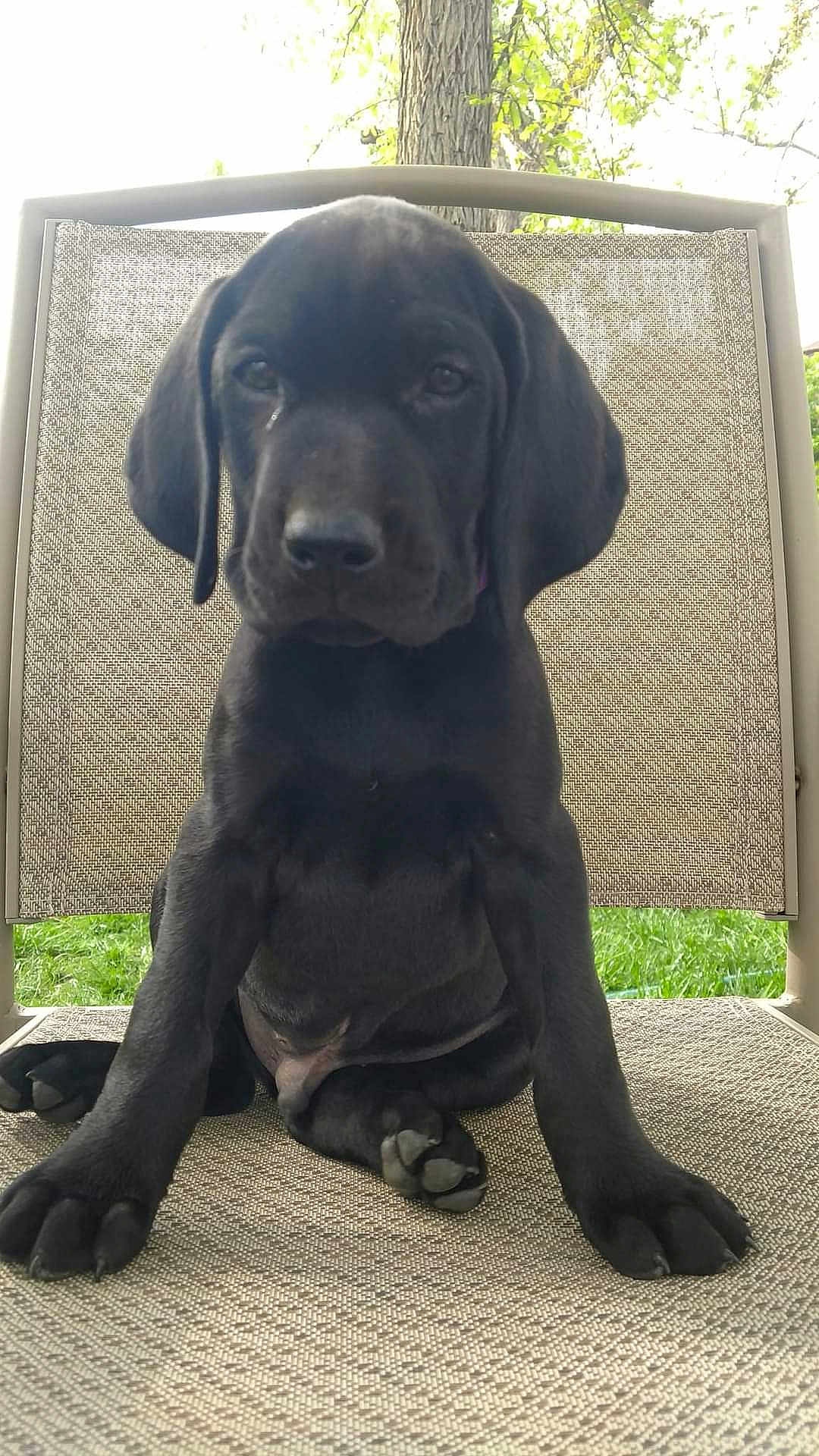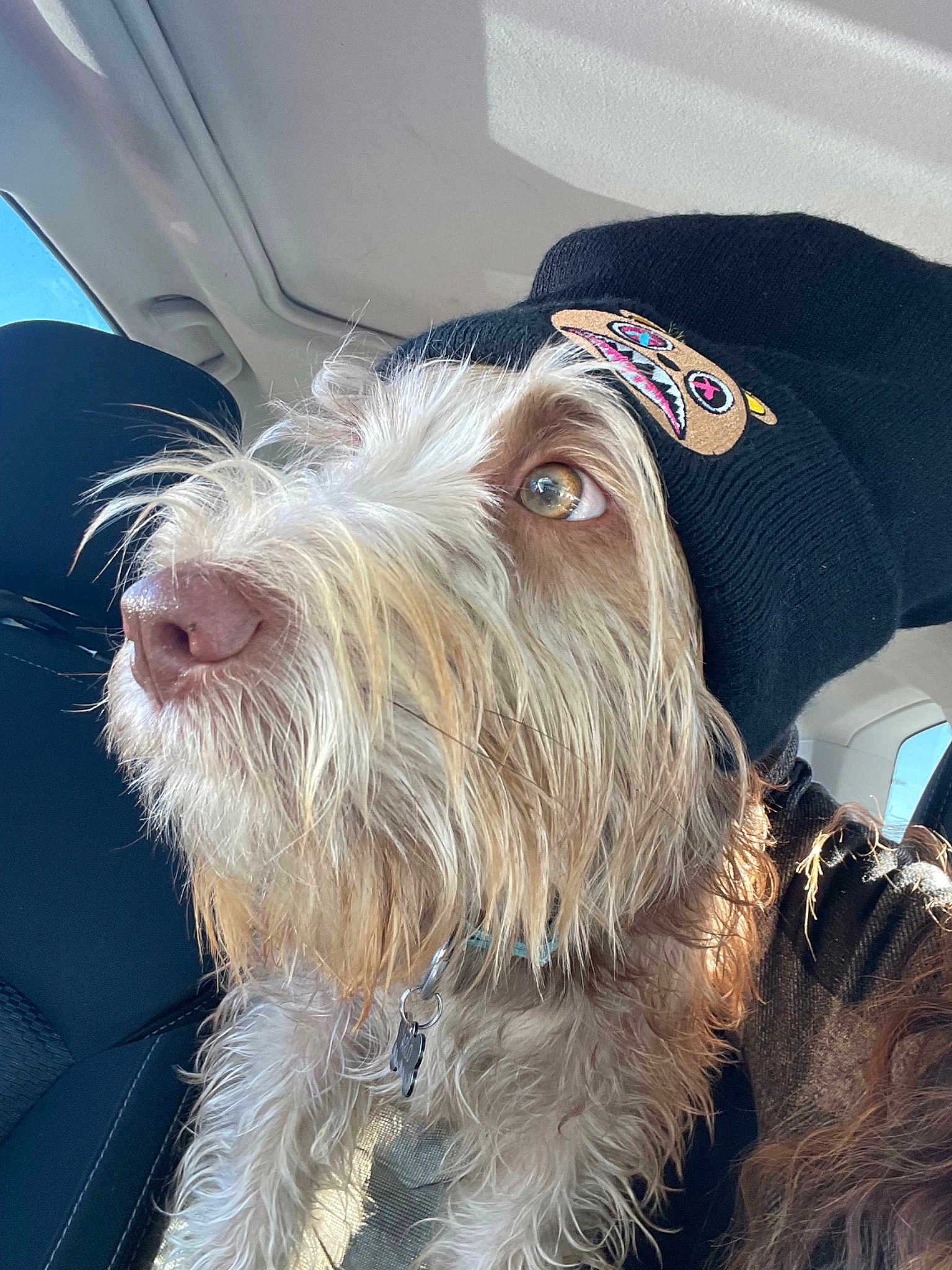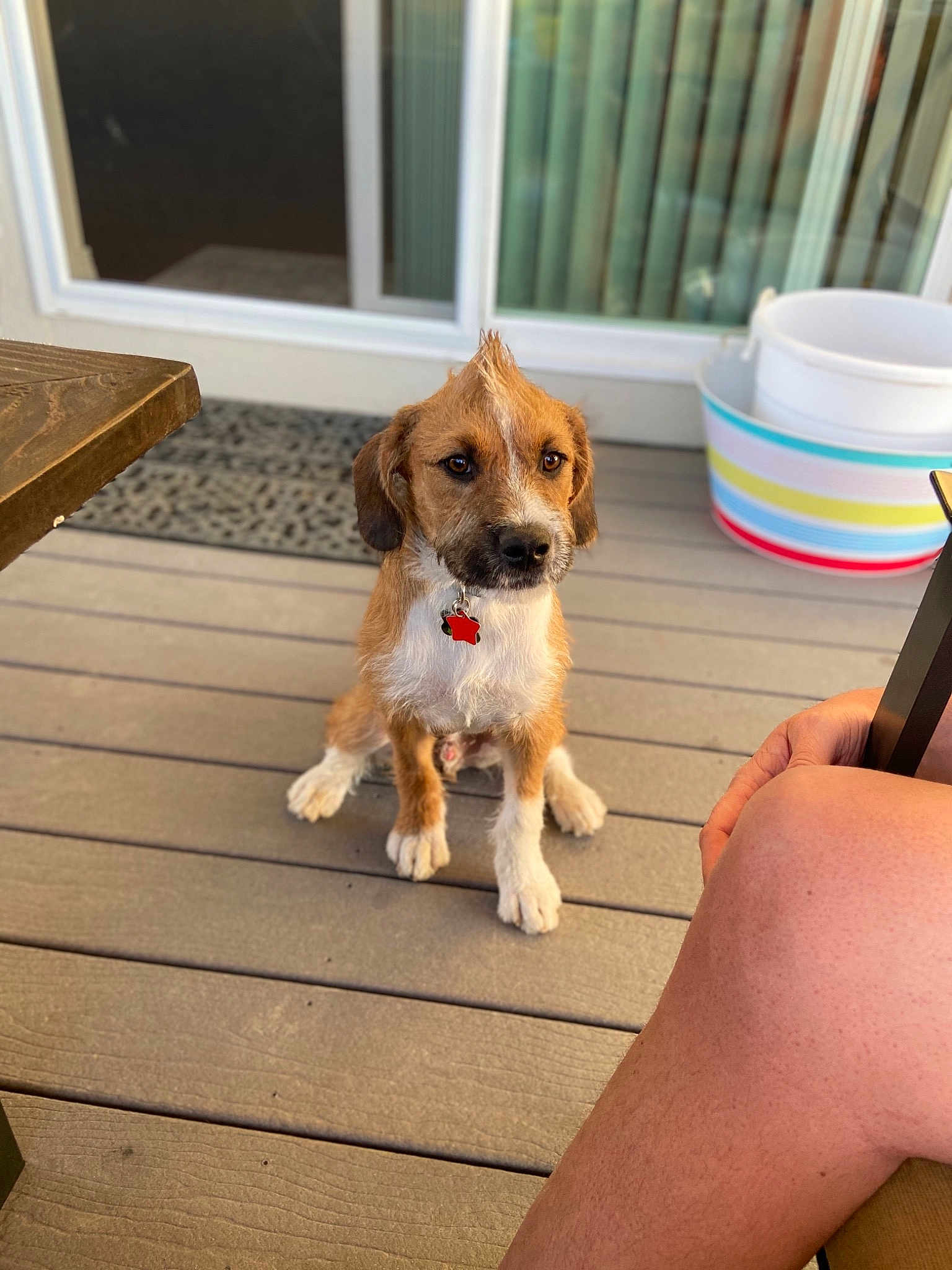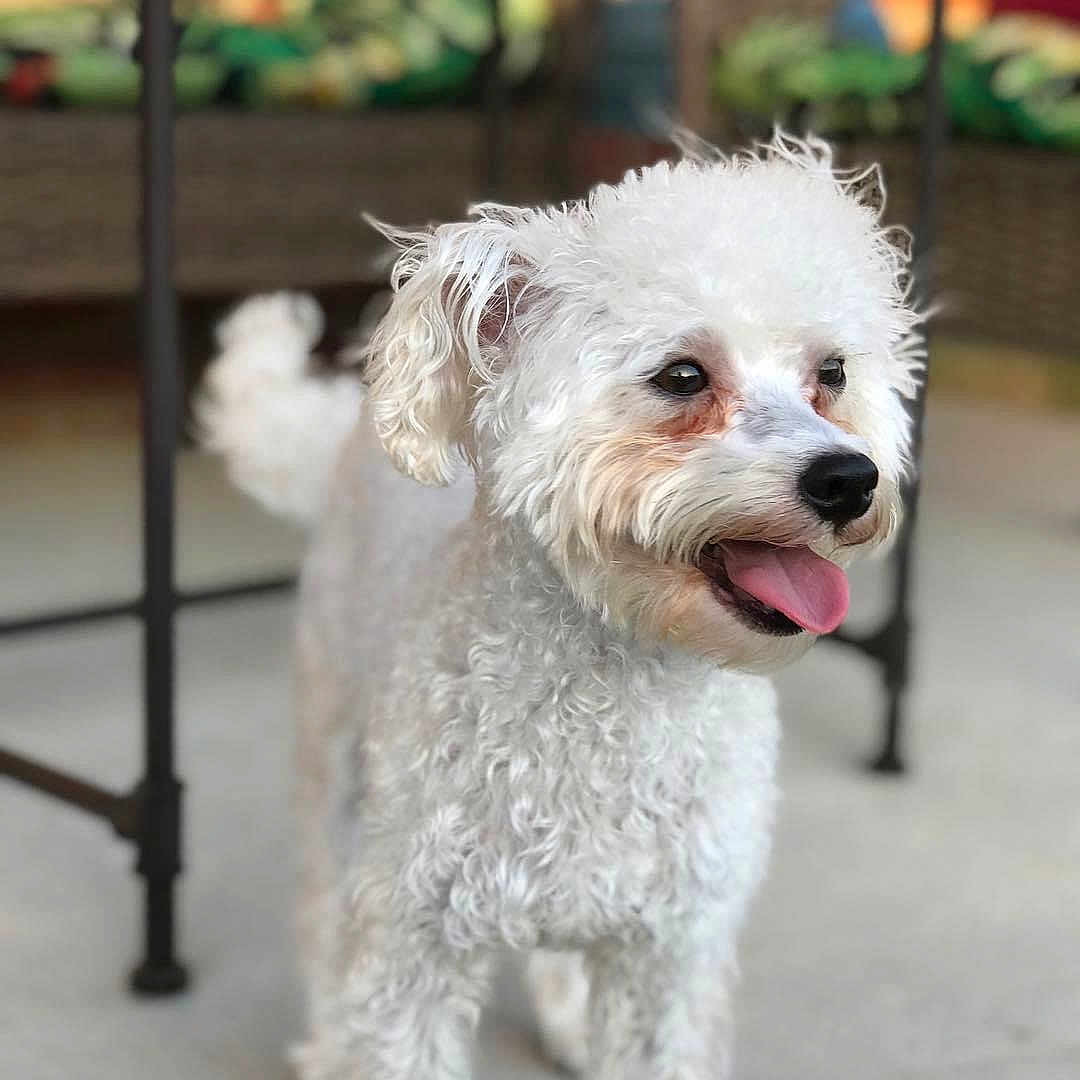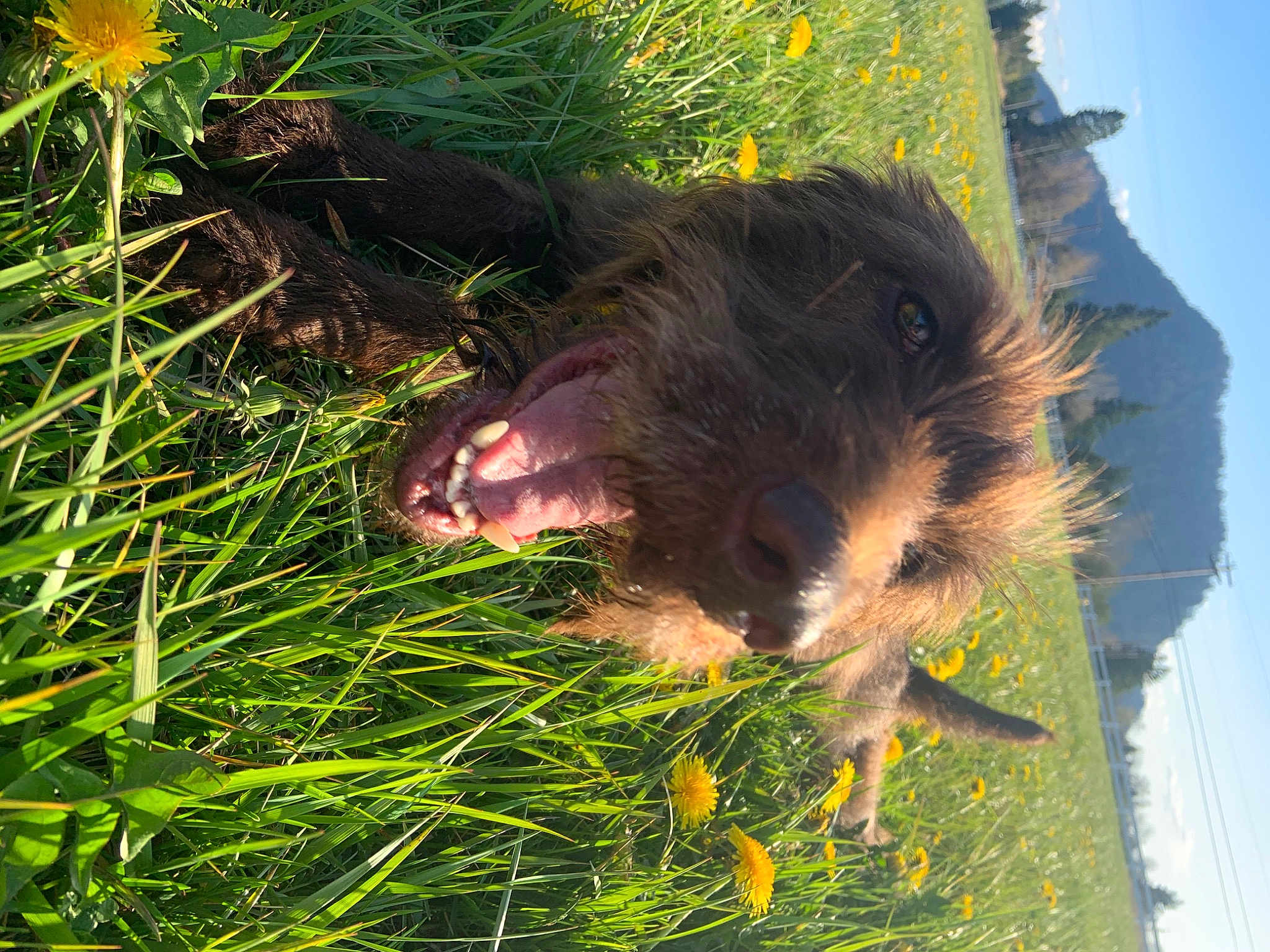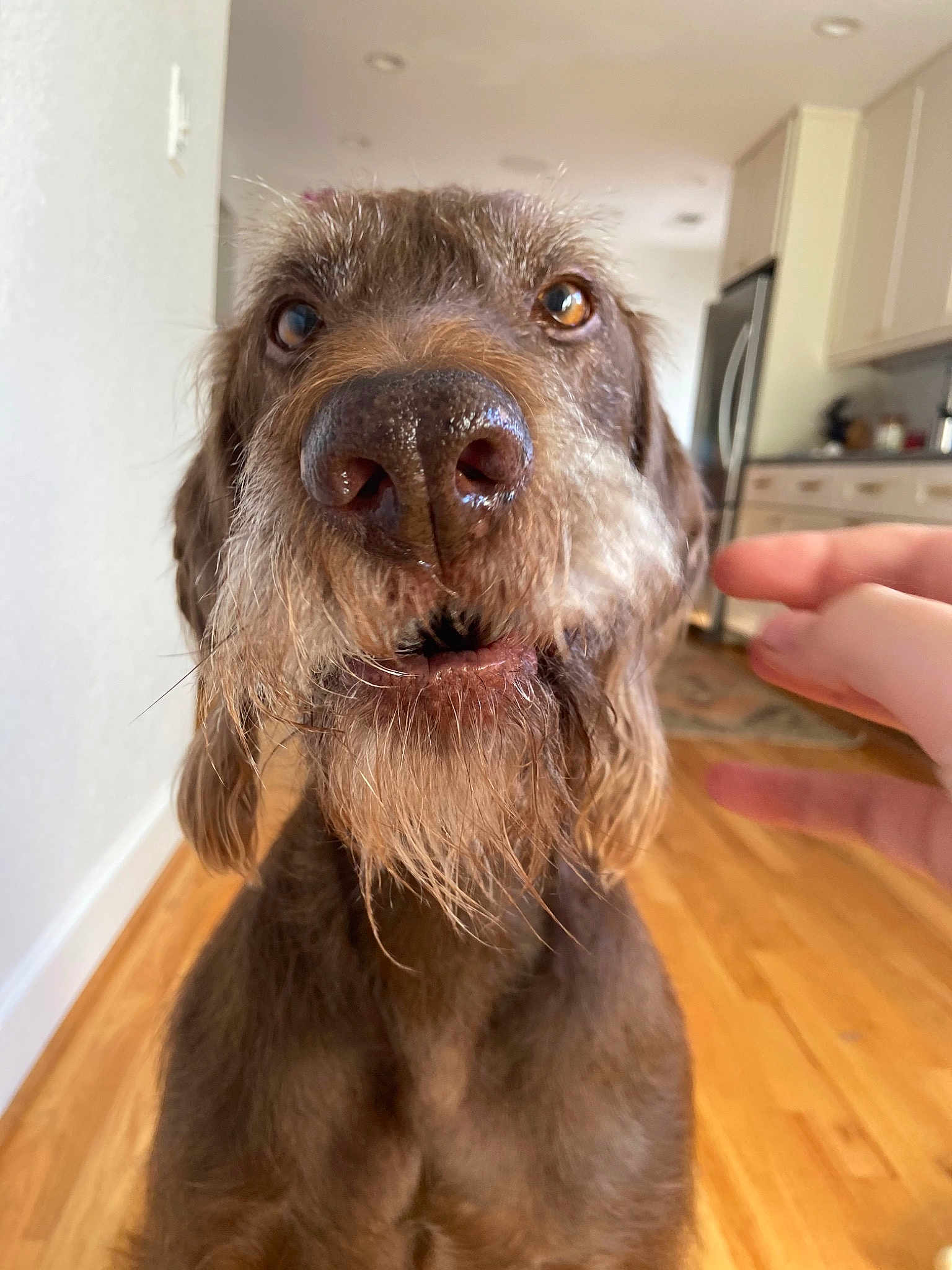"There is nothing truer in this world than the love of a good dog." – Mira Grant
Often praised for its intelligence, agility, and amiable nature, the Pudelpointer is a versatile and robust breed that has captured the hearts of dog owners worldwide. Originally bred in Germany in the late 19th century, these dogs present a unique blend of characteristics from two distinguished parent breeds: the Poodle and the Pointer. This hybrid aims to combine the smartest natures of both, forming a capable and loyal hunting companion that excels in various settings.
Personality and Behavior of the Pudelpointer
The Pudelpointer is known for its balanced and adaptable temperament. This breed is often described as both alert and calm, which makes it exceptionally versatile. Whether it is working in the field or relaxing at home, Pudelpointers adjust well to their surroundings and exhibit a reliable, steady demeanor.
These dogs possess a natural instinct for hunting, thanks to their Pointer lineage. They have an impressive ability to track, point, and retrieve game, making them a favorite among hunters who appreciate these innate skills. Interestingly, Pudelpointers also benefit from the intelligence and trainability inherited from their Poodle ancestors. This combination requires mental stimulation and physical activity to keep them happy and healthy.
Moreover, Pudelpointers are known for their friendly and loyal nature, making them excellent family pets. They tend to form strong bonds with their human companions and are often good with children and other pets. Their patient and gentle behavior adds to their charm, ensuring they fit well into various household environments.
Pudelpointers are not only great hunting dogs but also dependable companions who thrive on both mental and physical exercise.
Meanings, History, and Origins of the name Pudelpointer
The name "Pudelpointer" is derived from its progenitor breeds: the German Pudel (Poodle) and the English Pointer. Each part of the name reflects a significant contributor to the breed’s genetic makeup. The Poodle, renowned for its intelligence and hypoallergenic coat, brings agility and a high degree of trainability to the mix. On the other hand, the Pointer contributes fantastic hunting skills, endurance, and a strong instinct to direct and retrieve.
The deliberate crossbreeding of Poodles and Pointers began in Germany around 1881, pioneered by renowned breeder Baron Von Zedlitz. His goal was to create a breed that embodied the best features of both lineages. Over the years, selective breeding has honed these dogs into versatile, hardworking companions capable of thriving in different environments, from dense forests to open fields.
The historical roots of Pudelpointers align closely with the evolution of hunting practices in Europe. These dogs were engineered to be the ideal versatile hunting dog, competent in tracking, pointing, and fetching game on land and in water. The distinct characteristics of both parent breeds were meticulously preserved to ensure that the Pudelpointer met high standards of performance and temperament.
Popularity of the Pudelpointer
Globally, the Pudelpointer enjoys moderate popularity, with a dedicated following among hunters and outdoor enthusiasts. In contrast to some other breeds whose fame might wax and wane, the Pudelpointer's appeal has remained relatively steady due to its specialized working capabilities and versatile nature.
In English-speaking countries like the United States and Canada, the Pudelpointer has cultivated a loyal group of admirers. Many hunting clubs and dog sports enthusiasts regard it as a top choice for field trials and other outdoor challenges. Its reputation as a reliable and skilled hunting partner is well-earned and contributes significantly to its enduring popularity within these communities.
The breed is also loved in parts of Europe, particularly in Germany, where it originated. Here, the Pudelpointer continues to be a favored choice for those who value its practicality and robust work ethic. The breed's prominence in these regions can be attributed to its foundational role in the hunting traditions that remain an integral part of the cultural landscape.
While not as universally recognized as some other breeds, the Pudelpointer's unique qualities ensure it maintains an enthusiastic following. This trend proves that breed's appeal often goes beyond mere aesthetics and taps into functionality and tradition.
Health and Care of the Pudelpointer
Keeping a Pudelpointer healthy and thriving requires understanding a few specific care guidelines related to their breed needs. Generally, these dogs are known for their robust health and relative lack of genetic issues compared to some purebreds. Nonetheless, some health concerns need attention.
Common health issues in Pudelpointers can include hip dysplasia, a genetic condition affecting the hip joints. Regular veterinary checkups and maintaining a healthy weight through proper diet and exercise can help mitigate this risk. Another condition to be vigilant about is eye disorders, particularly progressive retinal atrophy (PRA), which can impact the dog’s vision.
Dietary needs for Pudelpointers should focus on high-quality, balanced dog food that supports their active lifestyle. Ensuring that they receive adequate proteins, fats, vitamins, and minerals is essential, particularly if they participate in regular hunting activities. Portions should be adjusted based on their age, size, activity level, and specific health conditions if present.
Regular physical exercise and mental stimulation are crucial for this energetic breed. Pudelpointers thrive on activities that challenge their body and mind, such as hunting practice, agility training, and obedience exercises. Additionally, their coat requires routine grooming to keep it in good condition. While not as high-maintenance as Poodles, brushing several times a week helps minimize shedding and prevents tangles and mats from forming.
Training and Education of the Pudelpointer
Training a Pudelpointer can be a delightful experience thanks to their high intelligence and eagerness to please. However, effective training must blend consistency, patience, and positivity. These dogs respond well to reward-based training methods, where positive reinforcement encourages desirable behaviors.
Given their inherent hunting instincts, early socialization and basic obedience training are crucial. Puppies should be introduced to different environments, people, and other animals to cultivate a well-rounded temperament. Integrating interactive play and structured activities can further enhance their development.
Pudelpointers can excel in advanced training scenarios, including hunting tests, field trials, and agility. Their natural abilities shine when given tasks requiring focus and precision. It's important to keep training sessions engaging and varied to prevent boredom and sustain their interest.
Choosing the Right Dog Breed
Choosing the right dog breed is a deeply personal decision that should align with your lifestyle, activity level, and preferences. For those who lead an active lifestyle and appreciate a breed with a rich history and versatile skill set, the Pudelpointer is an excellent choice. Their mix of intelligence, loyalty, and working ability makes them a well-rounded companion for both hunting enthusiasts and families.
The Pudelpointer has gained a special place in the hearts of many Pageant Dog contest participants. Known for their elegant yet practical appearance and endearing nature, these dogs often charm judges and audience alike. Selecting a Pudelpointer for your next pet could be one of the most rewarding decisions you ever make, combining beauty, brains, and a robust work ethic in one lovely package.




